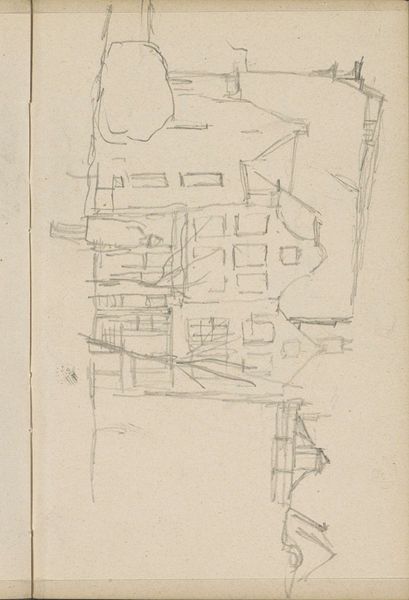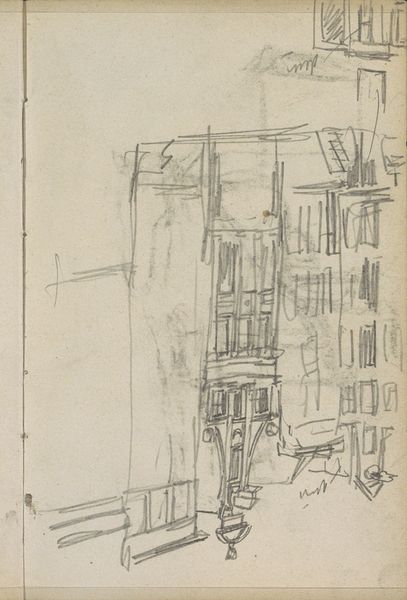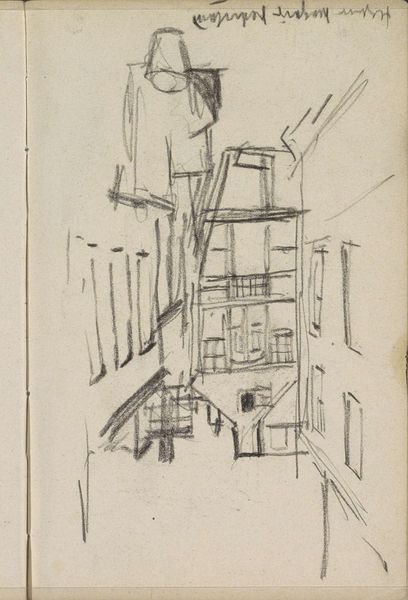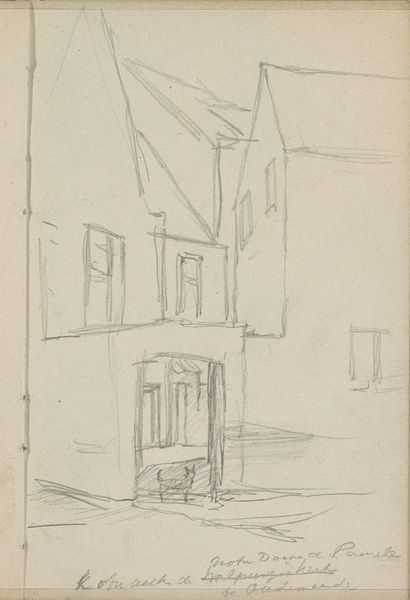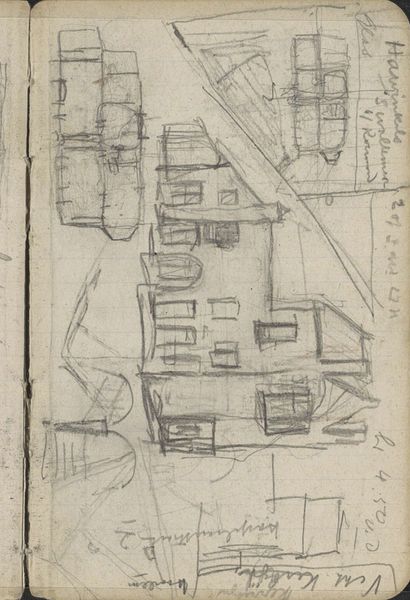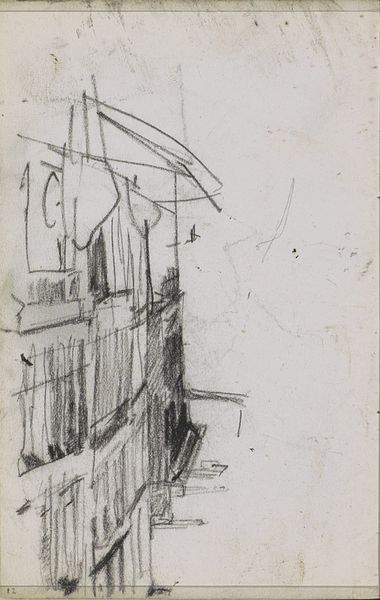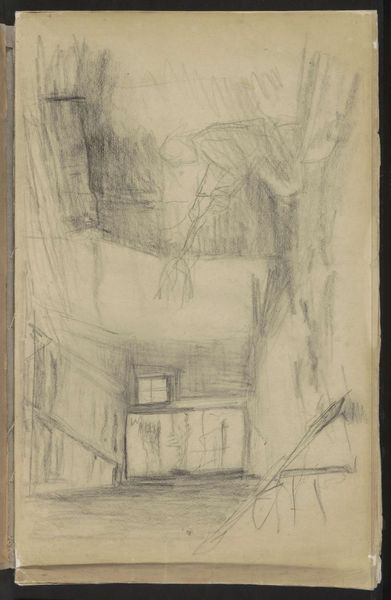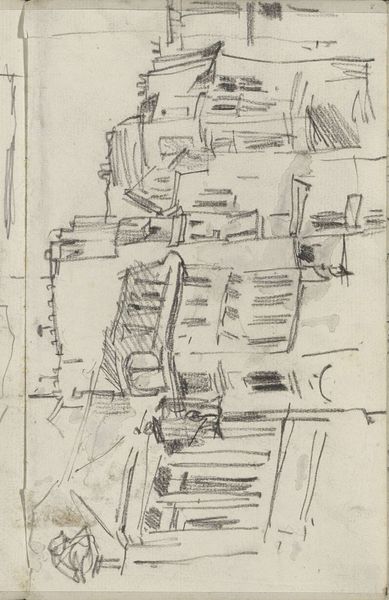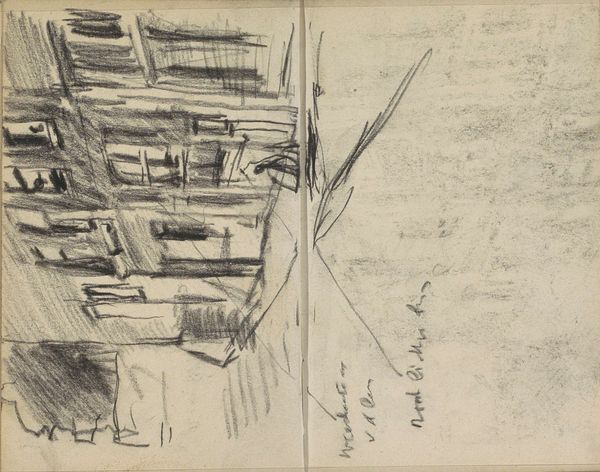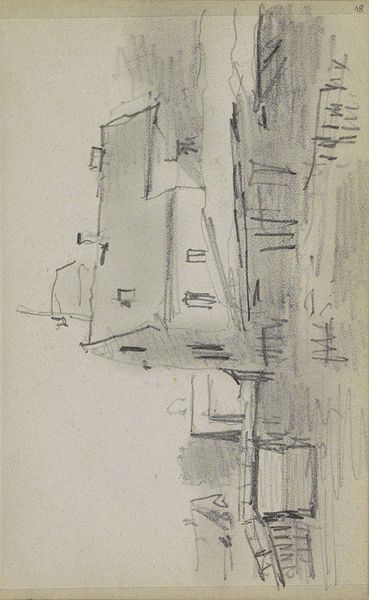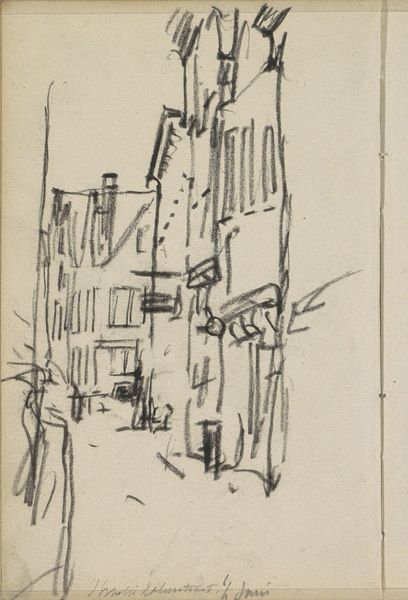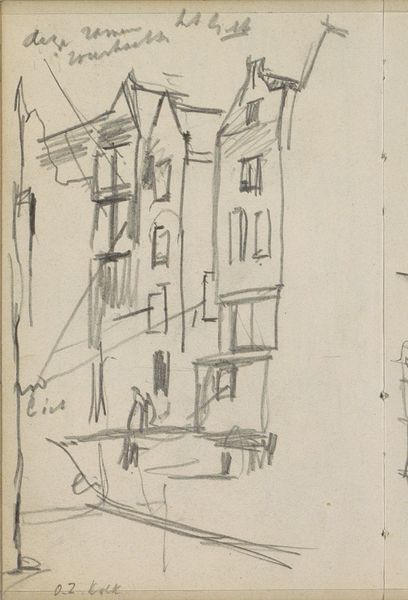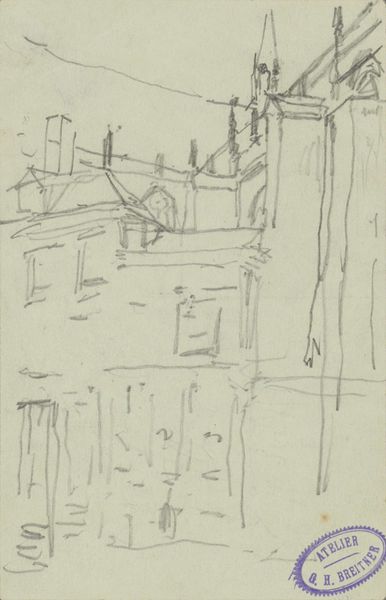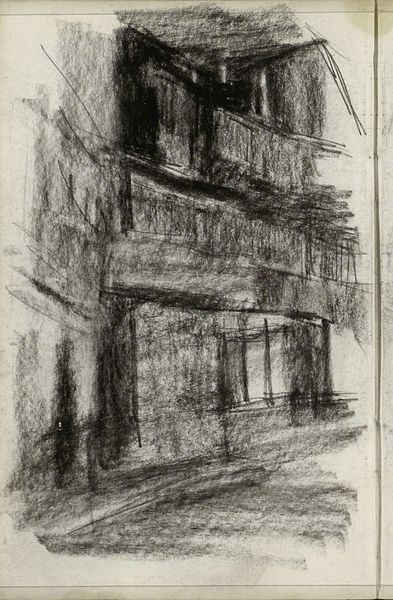
#
architectural sketch
#
aged paper
#
quirky sketch
#
sketch book
#
personal sketchbook
#
idea generation sketch
#
sketchwork
#
square
#
sketchbook drawing
#
storyboard and sketchbook work
#
initial sketch
Dimensions: height 200 mm, width 160 mm
Copyright: Rijks Museum: Open Domain
Editor: This is George Hendrik Breitner’s “Oude huizen aan het Beurspleintje te Amsterdam,” made in 1912. It’s a quick sketch, probably from a sketchbook. What strikes me is how unfinished it seems, almost like a fleeting impression. What do you see in this piece? Curator: I see a powerful snapshot of urban life undergoing rapid transformation. Breitner, known for documenting Amsterdam's bustling streets and working class, offers us a glimpse into the city's spatial and social dynamics. The sketch’s incompleteness isn’t a flaw, but a crucial aspect: it reflects the constant state of flux inherent to urban environments. Editor: That’s interesting. I hadn't considered the "incompleteness" as a statement. Curator: Think about it. The sketch captures a moment right before the old buildings were perhaps torn down, making way for new constructions, mirroring broader shifts in the city's demographics and power structures. Consider the lives impacted by these changes. Who benefitted from this "progress," and at whose expense? This work is a conversation starter for thinking about gentrification. Editor: So, you're saying it’s not just a simple architectural study, but a commentary on social change? Curator: Precisely! Breitner isn’t merely recording buildings; he's inadvertently capturing a specific historical juncture where the past is literally being erased to make way for the future. This resonates deeply with contemporary discussions about urban planning, displacement, and the preservation of cultural heritage. What do we lose when we erase these visual cues? Editor: I never would have thought to read so much into an "unfinished" sketch. Now I see how even a simple drawing can spark questions about urban development. Curator: It’s a potent reminder that art, in its myriad forms, reflects and shapes our understanding of the world. This piece prompts us to question whose stories are being told and whose are being left out.
Comments
No comments
Be the first to comment and join the conversation on the ultimate creative platform.
